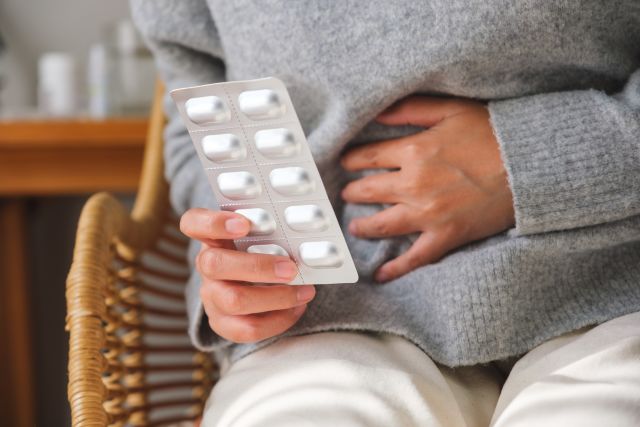Heartburn is uncomfortable, painful and disruptive to daily life. Luckily there are medications that can help, but 2016 research in the Journal of the American Society of Nephrology and JAMA Internal Medicine suggests that one particular type may be doing more harm than good for some people. The medication is called a proton pump inhibitor (PPI); two large studies suggest they’re associated with higher rates of chronic kidney disease and end-stage renal disease.
PPIs and kidney disease
“Since the studies have come out, patients have been asking about renal failure,” says Manmeet Padda, MD, a gastroenterologist with Medical City McKinney in McKinney, Texas. “We try to cut down on PPIs as much as possible. But these studies need to be interpreted with caution, because these studies have shown association but not causation, so still there is no clear indication that PPI actually cause renal failure.”
Another study of 144,000 people, this one from 2017 in the journal Kidney International, suggests that more than half of people on PPIs who develop kidney disease have no symptoms.
What is heartburn?
Heartburn is usually the symptom—not the condition. “Heartburn is a burning sensation in the center of the chest,” says Dr. Padda. It’s caused by stomach acid creeping up the esophagus, creating an uncomfortable, burning sensation.
Padda says a common source of heartburn is gastroesophageal reflux disease (GERD, also known as acid reflux), which can also lead to reflux esophagitis. Both have heartburn as a symptom, but reflux esophagitis is also characterized by inflammation of esophagus, usually discovered by a biopsy.
“If someone is having heartburn symptoms more than three times per week or they’re having problems swallowing, experiencing a change in their voice, or have a chronic cough or frequent laryngitis, I’ll arrange for upper endoscopy exam with possible biopsies to further evaluate the exact reason for these symptoms.,” Padda says. Experiencing heartburn fewer than three times per week or after a large meal is normal, he adds.
Not only is it uncomfortable, but chronic heartburn also puts you at risk for a variety of complications, such as Barrett’s esophagus (damage to the lining of the esophagus), esophageal cancer and strictures, which are a narrowing of esophagus caused by scarring.
Two types of medicine
Proton pump inhibitors reduce the amount of stomach acid made in the cells in the lining of the stomach. Aside from controlling heartburn, PPIs are also used to fight stomach ulcers and esophageal damage. Padda recommends using PPIs for heartburn without complications for two to three months, and three to four months for stomach ulcers. “Unfortunately, we’ve seen patients on PPIs for many years,” he says. “I always try to stop PPIs if there’s no clear indication to continue.”
Some research has also suggested that PPIs can increase the risk of bone fracture and bacterial infections called Clostridium difficile (also known as C diff), which can cause diarrhea and colitis.
There is a class of drugs called H2 blockers that work like PPIs by reducing the amount of stomach acid made by cells in the stomach lining. However, the two types of drugs affect different parts of the cells. H2 blockers usually work faster, but wear off more quickly than PPIs. H2 blockers are also thought to have fewer long-term complications.
Fight heartburn—without drugs
If you don’t want to take PPIs or H2 blockers, here are some home remedies for heartburn.
- Lose weight. Obesity is a risk factor for heartburn because it increases pressure in the stomach, and that pressure can push open the lower esophageal sphincter (a group of muscles that keeps your esophagus closed), which will let the stomach acid creep up into the esophagus.
- Change your diet. Some foods cause heartburn, like coffee, chocolate, alcohol and spicy foods. If you’re troubled by heartburn after eating some or all of these, avoid them.
- Keep your head up when you sleep. Gravity will help keep the stomach acid down.
- Quit smoking. Cigarette smoke can weaken the lower esophageal sphincter.
- Eat earlier. Having a full stomach while lying in bed can cause stomach acids to creep up the esophagus.






